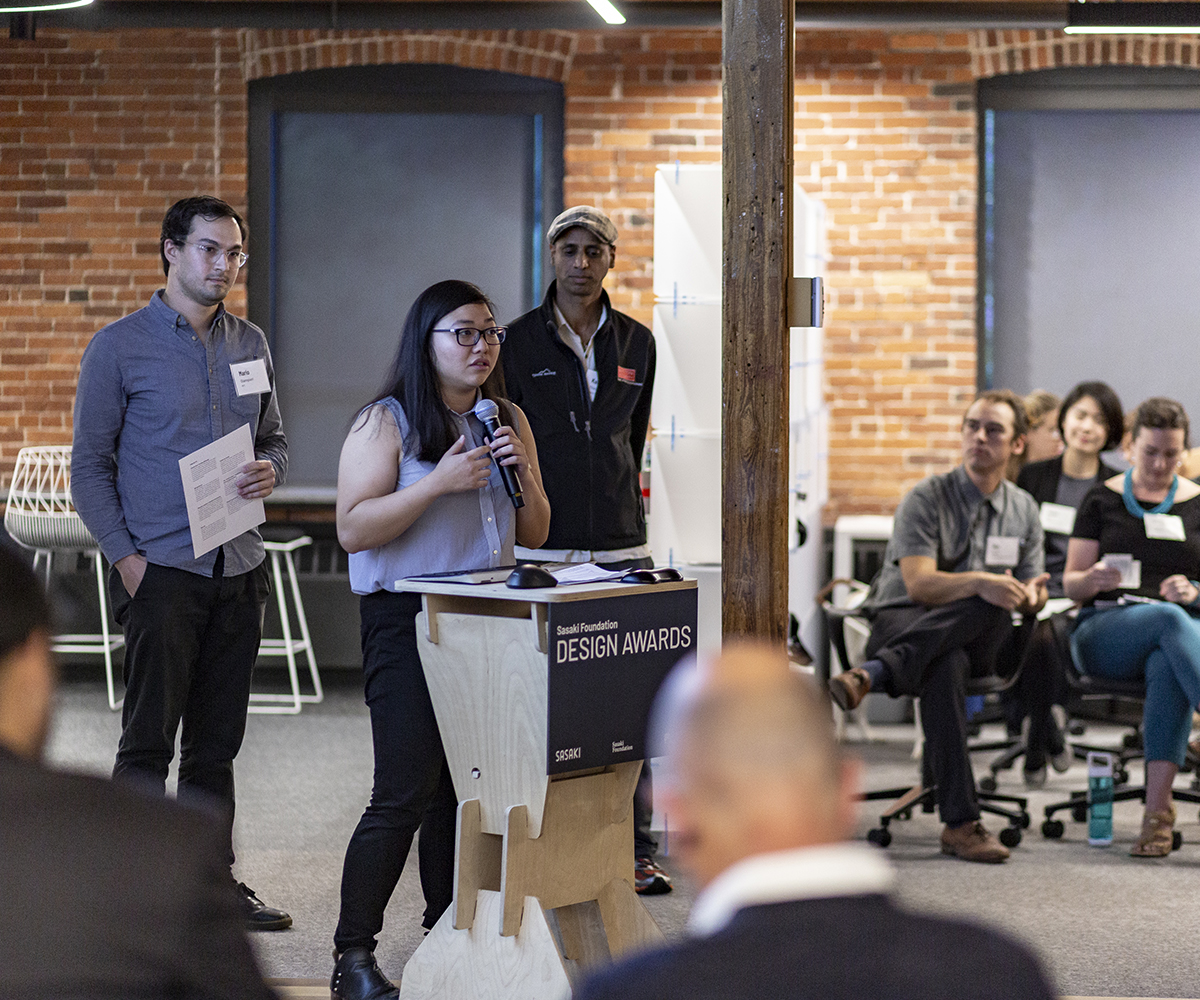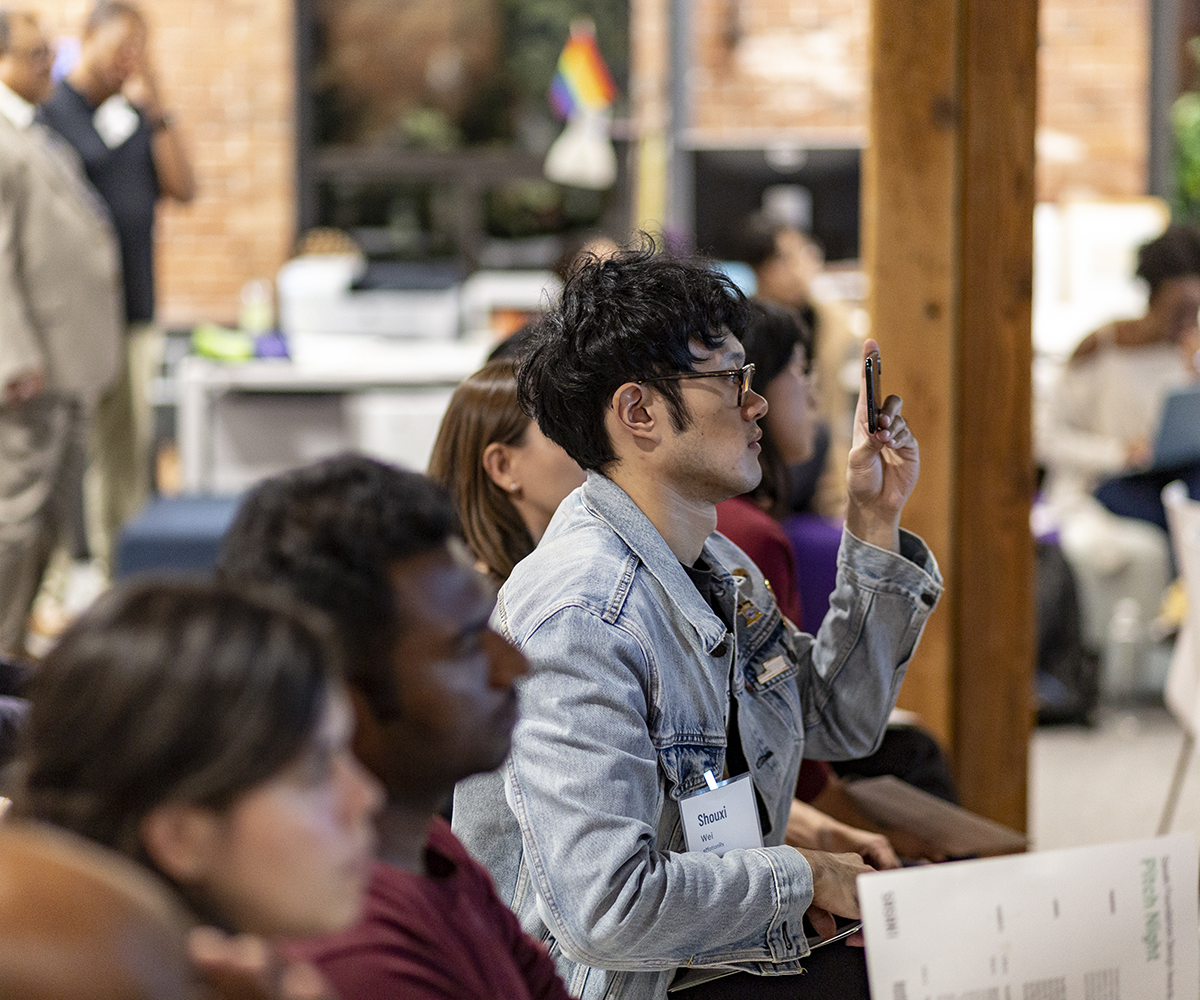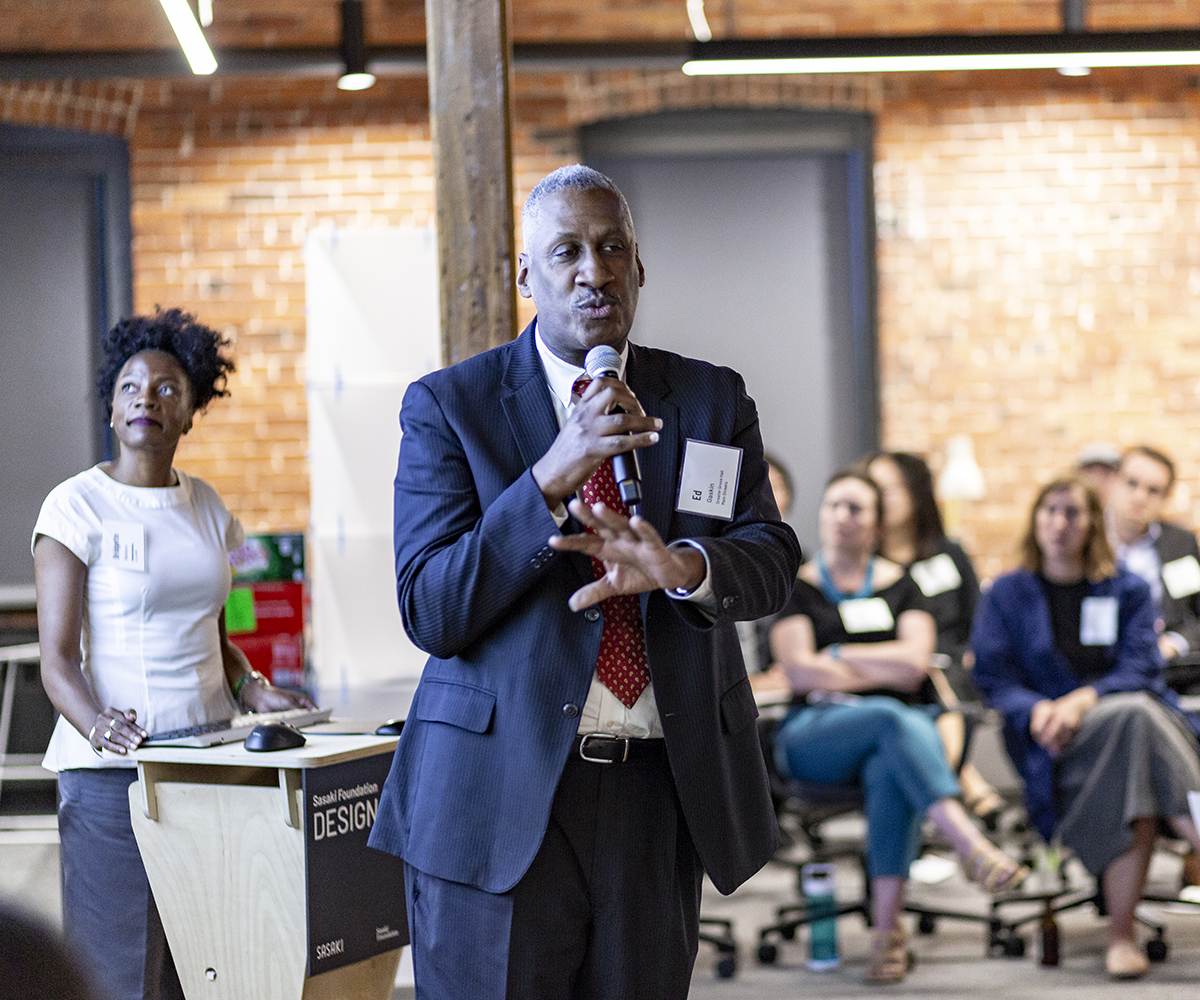September 28, 2018
Pitching to win $15K at the Sasaki Foundation Design Grants
On September 26, the Sasaki Foundation held a Pitch Night for the finalists in its inaugural Sasaki Foundation Design Grants competition. Over 140 people attended the event, including designers, entrepreneurs, investors, civic leaders, and corporate and non-profit leaders.
The Design Grants are an annual competition held by the Foundation to support and drive interdisciplinary innovation that helps to empower local communities. Each year, the Foundation chooses topics that address the current trends in design and inequities in those areas.
This year, the Foundation chose to focus on four themes: Proactive Approaches to Climate Adaptation; New Models for Housing; Innovation in Transit & Access to Mobility Choices; and Creative Community Building.
The Foundation received over 140 responses and approximately two dozen completed applications. The projects represented 15 organizations and seven groups. Projects were proposed in nine Boston communities, two Greater Boston cities, and three Gateway Cities in Massachusetts. The winning teams will each receive a $15,000 grant from the Foundation and space in the Incubator at Sasaki in Watertown, MA.
Look for our announcement on October 2 to learn who the 2018 Design Grant winners are!
The finalists include:
Charles River Floating Wetlands
The project explores a complementary approach aiming to reduce harmful algal blooms by enhancing zooplankton populations using floating wetlands. The goals are to create a visually impactful wetland installation, document the impact on zooplankton population and water quality, and educate the public about the relationship between river ecology, pollution, and water quality in order to work toward a healthy and swimmable Charles.
Eastie for Eastie
East Boston is a coastal neighborhood faced with rising sea levels and intensifying development pressure. Instead of trying to strictly preserve in place or be pushed out as development pressure increases, this project promotes using land pooling, land readjustment, and community land trusts as an alternative path forward.
G | Code House
G | Code House is a proposed pilot program that will serve young women of color ages 18 to 25 who have an interest and/or aptitude for computers or technology, but don’t know how to develop their interest or understand the opportunities. Designed as a co-living, -learning, and -working community, these women will attain technology instruction and skills, gain employment experience, and find support in a safe, focused home.


The ECHOLocator: Expanding Choice in Housing Opportunities
A new digital interface, the ECHOLocator, will provide housing choice voucher holders with customizable information on communities that are both affordable and serve their public transit needs.
Weaving Together a Resilient Community
A collection of continued histories across multiple disciplines come together to compose a synergistic array of tools to rethink productive methods of placekeeping in Lowell, MA. Through artistic intervention driven by a participatory community input, this project proposes to inquire and deliver freshened frameworks that cultivate collective identities.
Please Touch the Art
“Please Touch the Art” is a tactile art exhibit and companion humanities exhibit accompanied by a curator’s talk and panel discussion at the Mosesian Center for the Arts. The exhibit will provide a multi-sensory art experience that is accessible to all audiences, taking special care to provide an immersive, tactile experience for visually impaired community members.
People’s Redevelopment Authority (PRA)
PRA engages diverse Bostonians in imagining the possibilities and benefits of investing in new ways that share power and resources, particularly with historically neglected neighborhoods and residents. The focus is the newly-minted Upham’s Corner Arts Innovation District, and the goal is to both increase community input and help align multiple visions through a fluid process of design and engagement.
Rise Up
The goal of this project is to develop a blueprint for setting up an assistive technology makerspace/fab lab in the City of Cambridge. During this project the team we will develop a blueprint operating manual describing in readily implementable detail how such a makerspace will operate as a meeting place where people with various disabilities will be able to find the tools and institutional support needed to design and make assistive devices to suit their needs.

